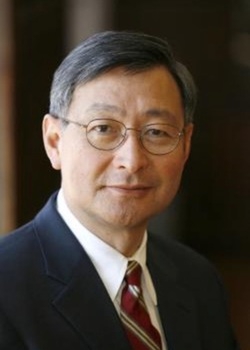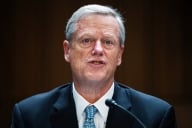You have /5 articles left.
Sign up for a free account or log in.

Hai-Lung Dai
Temple University
Temple University has a new provost and a newly adjusted budget, but the Philadelphia research institution is still grappling with the sudden dismissal last week of its provost on the heels of a high-priced financial aid overrun.
Faculty members have continued to protest the June 28 dismissal of Provost Hai-Lung Dai, who was in the position for four years, a move revealed in what some saw as a terse and even disrespectful announcement from President Neil D. Theobald. But Theobald has forged ahead, announcing Tuesday the nomination of the university’s law school dean, JoAnne A. Epps, as its new provost.
The changes have many faculty members expressing optimism about the leadership potential of Epps, a widely liked figure, longtime faculty member and former prosecutor who was once mentioned as a potential United States Supreme Court nominee. Yet some continue to object to the treatment of Dai, who has drawn both praise and criticism in his time as a high-level administrator. The situation has highlighted rumors of a long-simmering rift between Temple’s president and former provost while also shining a light onto the difficulties of financial aid projections and student attraction.
That’s because word of Dai’s dismissal came on the same day Temple confirmed that it had blown past its financial aid budget for the 2016-17 academic year. Temple said it projected expenses at $22 million more than it initially expected, pushing the university-funded grant aid budget to nearly $112 million, up from $92 million the year before.
The overrun is the result of an unexpectedly strong incoming freshman class. Temple automatically awards some scholarships based on SAT scores and grade point averages. For the fall 2016 semester, incoming freshmen with high school GPAs over 3.6 jumped to 2,573, up 17 percent from the year before. Incoming freshmen with SAT scores above 1,300 spiked to 1,028, up 29 percent year over year. Students need to hit both GPA and standardized test markers to qualify for different scholarship levels.
In response to questions from Inside Higher Ed, Temple released a statement saying that its president and trustees “quickly addressed the matter,” preparing a revised 2016-17 budget that balances. No students were affected, and adjustments did not come in the form of a tuition increase, it said. Adjustments were made in administrative cost cuts and budget reallocations, a spokesman said in an email.
It’s clear that $22 million is a significant but not crippling amount for an institution that operated on a budget of about $1.4 billion last year. Less clear is whether the overrun directly led to Dai’s dismissal. Temple would not say why Dai was removed from the position of provost.
“Temple does not discuss personnel decisions of this type or their rationale publicly, which can often make public statements about those subjects seem abrupt,” said a statement provided by the university. “But we do not take these matters lightly.”
It is, however, hard to separate Dai from Temple’s financial aid matters. The university’s Office of the Provost oversees enrollment management, including student financial services. And Dai was a public face of the scholarships for high-achieving students at Temple. When the university announced a new academic scholarship program in October 2012 reserving academic awards for students meeting certain GAP and SAT marks, Dai was the first person quoted in a university release. He said Temple was examining its entire financial aid strategy, but the new scholarship program being announced created new levels for merit-based aid.
“By offering more academic scholarships, we’re providing direct aid to students, which helps to reduce the financial burden on families,” said Dai, who was interim provost at the time.
Theobald was unhappy with this year’s budget shortfall driven by financial aid, The Philadelphia Inquirer reported. Regardless of the internal politics behind the financial aid overrun, it is at least in part a symptom of larger changes in the higher education marketplace.
“Misses on institutional aid are really becoming more of the rule than the exception,” said Rick Beyer, a former president of Wheeling Jesuit University and a consultant who is the managing principal of AGB Institutional Strategies.
In short, students are acting increasingly like consumers and paying attention to value as they prepare to pay tuition. They’re picking colleges and universities offering lower net tuition, driving a deflationary pricing trend, Beyer said.
In the case of a university offering non-need-based aid, that can create a situation where finances can conflict with the push to recruit high-achieving students. Institutions offering fixed financial aid based on academic chops can find themselves holding large bills when more high-achieving students accept admission than expected.
In other words, financial aid and recruitment policies can become too successful. The scales can tip from attracting top-tier students who benefit university rankings all the way to busting budgets.
“The consumer realizes, ‘Wow, I’m picking up a better value,’” Beyer said. “But it’s coming at a price for the institution.”
Beyer said institutions have to be careful when making changes to their pricing policies. They have to measure aid being granted frequently during admissions season. Beyer suggested reviewing on a weekly basis instead of reviewing aid at the end of the fiscal year, which can lead to suddenly finding major missed targets.
Temple faculty members said there have been discussions on campus about financial aid overruns for several months. Faculty sources said rumors have long swirled of tension between Dai and Theobald but added that the rumored tension was not related to one single issue.
Dai, who remains a professor of chemistry at Temple, did not return a request for comment. Neither did his lawyer, Patricia Pierce. But she told The Philadelphia Inquirer that Dai’s dismissal as provost was “rash and completely unjustified.”
“Dr. Dai is especially proud of the world-renowned faculty he has helped attract,” she wrote in a statement to the newspaper. “In addition, student applications have doubled at a time when other institutions are facing decreases in enrollment.”
Temple said it had set a new record for freshmen applications on Feb. 24 of this year -- days before a March 1 application deadline. Applications totaled 32,655 at the time, breaking the university’s record of 30,043, set the year before.
Temple’s freshman class entering in the fall of 2015 was approximately 4,900. The university expects this year’s class to number roughly the same.
Dai was not universally loved by faculty members. Some felt he did not consult with them on key issues like changes to the academic calendar. Others did not like how he handled adjunct faculty members’ push to unionize or his recommendations in some tenure cases.
But the way he was dismissed -- in a three-paragraph, 120-word email -- still drew faculty fire. Temple Faculty Herald Editor Paul S. LaFollette Jr. penned an editorial in the Faculty Senate's publication objecting to Dai’s dismissal. LaFollette, an associate professor in the Department of Computer and Information Sciences in Temple’s College of Science and Technology, who is a former president of the Faculty Senate, called the move disrespectful to the former provost, the university’s faculty and the university itself.
“The idea, prevalent in the corporate world, that personnel decisions are nobody’s business but management does not carry over well into the academic world precisely because we the faculty, and we the administration are best modeled as scholarly colleagues who respect and consult with one another,” LaFollette wrote.
A petition objecting to Dai’s removal had drawn more than 3,600 supporters as of Wednesday afternoon. Started by Temple chemistry Professor Eric Borguet, for whom Dai was a doctoral adviser at the University of Pennsylvania, the petition calls for Temple trustees to look into the ouster and Theobald’s leadership.
“Actions of this magnitude must be explained and cannot seem to be made arbitrarily,” the petition read. “Second, the sudden nature of the decision raises serious questions about the president’s judgment, given that removal from office -- ‘effective immediately’ -- usually is a response to serious allegations of malfeasance, which are not at all mentioned in this case. And third, the president does not acknowledge the achievements the provost has made during his tenure in office, which include moving Temple University to Carnegie I status and increasing the numbers and quality of our incoming students.”
Michael Sachs, the president of Temple’s Faculty Senate, hopes to hear Theobald elaborate in the future on his decision to change provosts. Despite any controversy over Dai’s dismissal, feedback regarding Epps’s selection has been generally positive, said Sachs, a professor of kinesiology in Temple’s College of Public Health.
“I think the previous provost, Provost Dai, laid a good foundation for her to come in and sort of keep the momentum,” Sachs said. “Things were -- have been going -- fairly well, I think.”
Epps told The Philadelphia Inquirer she had not sought out the provost position but that she wanted to keep the university on its trajectory.
“I'm hoping to continue to build on Temple's strong research commitment and continue to attract world-class faculty,” she said.
Sachs said he didn’t know of a connection between the $22 million financial aid overrun and Dai’s dismissal. But he credited the previous provost with increasing the university’s rankings.
The new provost will have to address the question of whether Temple will continue to use financial aid to attract students with high academic indicators, Sachs said.
“That will be a philosophical issue that JoAnne Epps is going to have to wrestle with,” he said. “How much do you want to spend on that, what the priority is and so on and so on.”








